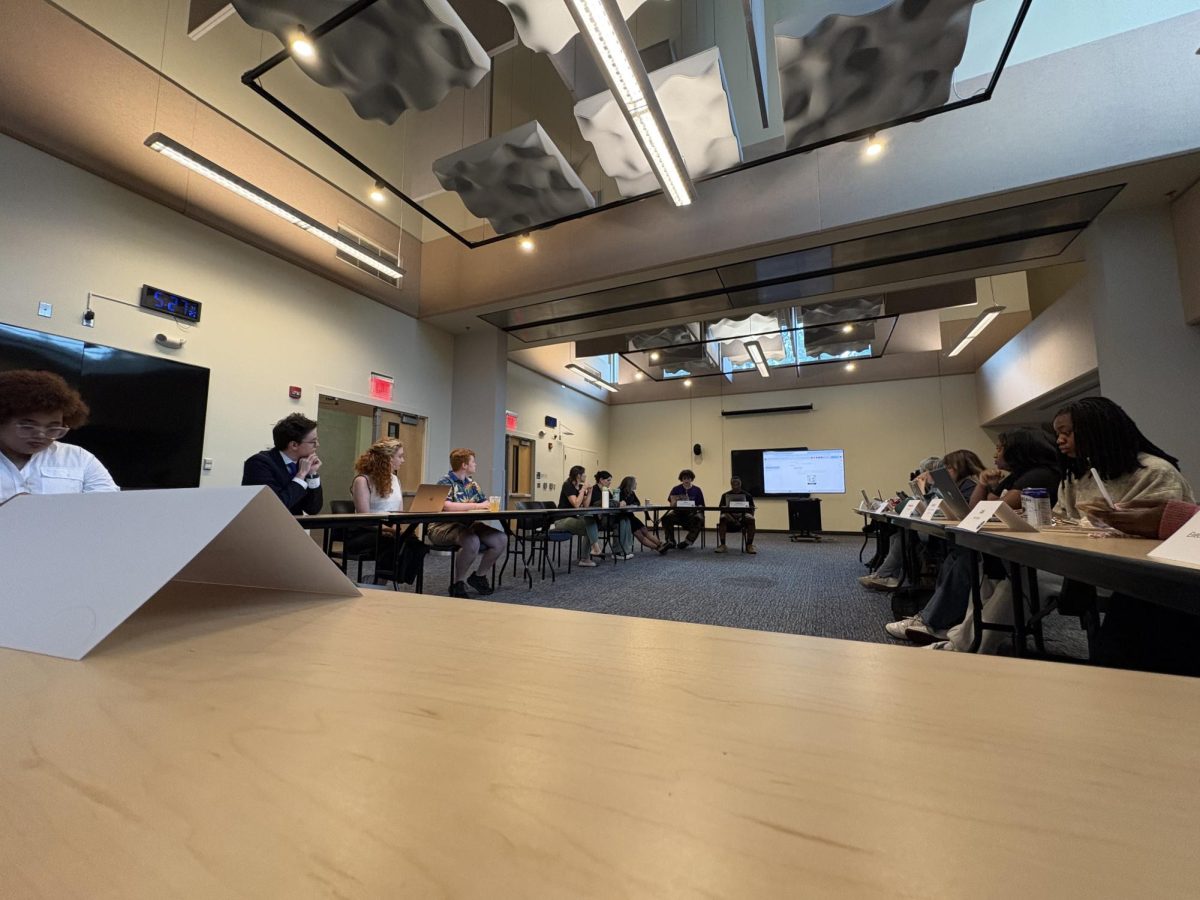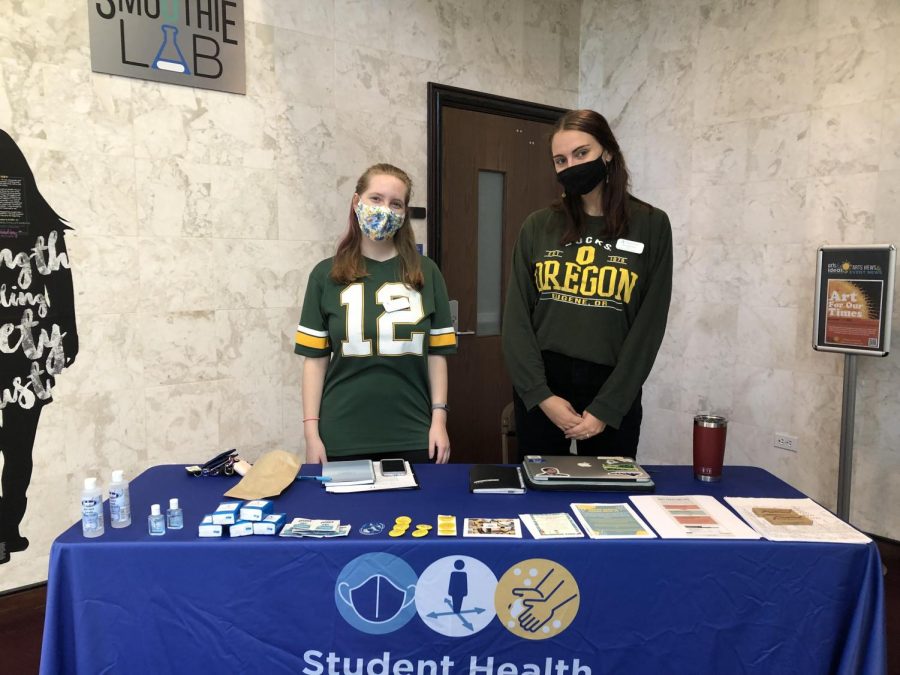Student employees reflect on working during COVID
From left to right, junior Laura Searles and alumna Nora Maybury at the student health ambassador table in Ramsey Library.
February 10, 2022
Monday mornings are for coffee. As the line in front of Roasted grew, students passing by in Highsmith were just as curious as their classmates: Where did all the workers go?
“It gets really quiet down here,” Jillian Bailey said as Baxter, her service dog, stuck his head from under the table.
Like the rest of the country, UNC Asheville’s dining facilities and other departments are in high demand for student employees and faculty to relieve stress. All while, students are seeking employment that pays a living wage without sacrificing their mental health.
In the basement of Ramsey library away from the lunch lines, Bailey and Baxter are busy holding down the service desk.
“It was good because I felt safe, so working at a place I know is following university guidelines made me feel comfortable,” said Bailey, a junior working in the Academic Success Center.
Bailey said she values the convenience of working on campus and the assurance of knowing her education comes first. Employers in the city are not always accommodating of students’ schedules. Campus jobs may eliminate the pressure of being overworked by prohibiting students from working more than 20 hours per week, yet limit chances to make real money.
“There are advantages. I don’t have to drive as far, but I do make more money off campus. I would say I prefer it on campus,” Samantha Reese said.
Hourly wages for jobs on campus are often minimum wage. Pay for positions at the Student Recreation Center, for example, vary from $8.50 to $10.50 per hour. If students are certified, they can make $15.50 to be a personal trainer. Students have other opportunities to make cash on campus through the research department, housing, media lab and as a teaching assistant for professors.
Reese, a teacher’s assistant in the chemistry department said being a student employee during COVID-19 comes with many pros and cons. She said it’s still tricky supporting her peers in the lab while keeping her distance.
Student workers are concerned employers outside of campus won’t respect their time or enforce safety precautions such as mask mandates. In this economy, businesses are begging their staff to work extra shifts to keep the doors open. Bailey and Reese both have previously worked on campus and said they decided to stay rather than commute back and forth between campus.
Laura Searles, a junior and student health ambassador, never had a job off campus. She worked for Campus Housing as a resident assistant during the fall of 2020 and looked after two floors of students due to staffing issues.
“It started out pretty OK. Being an RA is a lot of work. It would’ve felt better if I had a little bit more compensation for all the extra stuff I was expected to do,” Searles said.
According to Searles, the position was time consuming, requiring assistants to keep an open line of communication with residents, monthly bulletin boards, tending to emergencies and remedying conflict. Searles said she felt greatly supported by the head resident and area director during her experience, who encouraged her to take a break from her duties.
“At the beginning of the year, my area director took us all out and got us milkshakes and we all ate together which was really nice,” Searles said.
Searles was recommended to apply by her resident assistant. She believed the job would force her to make new friends and get involved on campus while getting paid. After working for a year in Residence Life, the junior decided to leave because of the extra responsibilities and not enough pay.
Students working on campus said they are content for the most part but agree financial support from UNCA could be better.
“I’m all for raising student wages,” she said.
Unlike Bailey’s retail job at the bookstore, she said one perk of working in the library is that UNCA accommodates her needs by allowing her to bring her service dog, Baxter, to the desk. Bailey said faculty and administration generally offer students adequate support, but can offer students at work even more of it by giving them pay raises.
“I think UNCA does a great job supporting the student workers. I know everyone is always willing to work with you and answer any questions. I haven’t had any bad experiences, so I’d say they’re doing fine,” Reese said.


















